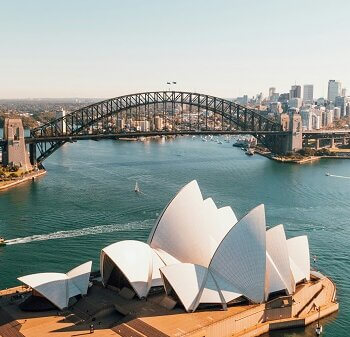
Special Focus on Myanmar – Business and Branding in the Land of Golden Pagodas
Myanmar is set to be the new focal point in Asia as its economy experiences robust growth rates. Legislative and economic reforms in recent years coupled with infrastructural improvements have encouraged foreign direct investment. Both legal and extra-legal developments signal that the turn of the decade may be an opportune time for businesses to venture into the Myanmar market.
Background
Myanmar’s economy: setting the stage for a new era of business opportunity in Myanmar
The World Bank estimates that Myanmar’s economy grew at 6.3 percent in 2018-2019, with sustained growth expected to reach 6.4 percent in 2019-2020. The service sector is one of the main drivers of growth and Myanmar is also seeing robust growth in wholesale and retail trade.
There is still the ongoing presence of armed conflict and violence in the border areas, such as the Rakhine conflict, which has contributed to some insecurity in Myanmar. However, we are seeing a recovery in tourism related services, growing investment in the transport and telecommunications sector, as well as government initiatives towards infrastructure development in these areas. These trends bode well for tourism and hospitality related industry sectors. On the intellectual property front, Myanmar has signalled its commitment towards IP administration and protection. In Myanmar’s 2018 statement at the 58th Session of the Assemblies of the Member States of WIPO, Myanmar stated its ongoing efforts to modernise its IP legislation and to develop a viable IP administration in order to cater to the increasing economic activities and investments in Myanmar. In October 2019 at the 59th Session of the WIPO General Assemblies, Myanmar reported on the successful promulgation of new IP laws spanning trade marks, patents, copyright and industrial designs. Myanmar also affirmed its mission of developing a proper IP system to promote innovation and creativity.
Foreign-ownership in local companies
- Since August 2018, foreigners have been allowed to own up to 35% shareholding in a company without it being characterised as a “foreign company”. A “foreign company” is subject to restrictions under the Myanmar Investment Law.
- The Ministry of Commerce has relaxed the 35% rule even further by allowing 100% foreign ownership for companies operating in two specific sectors – retail and wholesale, education. This signals a concerted effort by the Myanmar government to improve access to quality education and technological products in the country.
New trade mark laws – More bite for rights holders
- On 30 January 2019, Myanmar’s new trade mark laws were enacted to establish a “first-to-file” regime (subject to prior use rights) with a centrally maintained registry. This represents a paradigm shift away from the previous, more archaic system requiring lodgement of a Declaration of Ownership and publication of cautionary notices, and brings Myanmar more closely aligned with the trade mark systems implemented in many major jurisdictions around the world.
- Under the new system, trade mark owners are expected to enjoy stronger protection for their brands, with certainty of their rights and ability to enforce against infringing parties.
- The new system is expected to come into force in early 2020, although delays are expected. Existing registrants under the current system and owners of marks that have been put to use in Myanmar (regardless of whether having registered the mark) will be entitled to re-file their marks during a 6-month transitional period known as Soft Opening to ensure that prior rights are not lost. Mark owners who do not fall into either category can only file their applications during Grand Opening, i.e. after Soft Opening ends.
Infrastructural Reforms
- Planned infrastructural upgrades are expected to greatly increase connectivity and trade in the region. The Yangon Bus Service established in 2017 has greatly improved ease of commuting across the city. A new airport project outside Yangon is also in the pipelines, pending successful negotiations.
Special Economic Zones
- Special Economic Zones (“SEZ”) have been set up in Myanmar to bring in foreign direct investment by capitalising on Myanmar’s strategic geographical location in the region and relatively low labour costs. There are currently 3 SEZs in Myanmar – (1) Kyauk Phyu in Rakhine State, (2) Dawei in the Thanintharyi Region and (3) Thilawa in the Yangon Region.
- Sub-zones exist within SEZs focusing on different industries.
- Free Zones – Mainly focused on companies engaged in export-oriented markets such as manufacturing, wholesale and transportation.
- Promotion Zones – Services targeting the domestic market, such as housing, retail, banking, insurance, education, healthcare, are welcome in the Promotion Zones.
- Companies who choose to set up businesses in the SEZ are offered attractive tax break. Companies who choose to set up businesses in the SEZ are offered attractive tax breaks of 5-7 years, and generous land lease terms of up to 75 years, amongst a host of other economic incentives.
- Notwithstanding the relaxing of laws to welcome foreign investment, businesses may still need to obtain the Myanmar Investment Commission’s (MIC) approval if they fall within certain conditions, such as businesses that involve large capital investment, will likely affect the environment and local community or involve state-owned land.
Sector-specific tax exemptions
- Companies operating outside the SEZs can also be eligible for tax exemptions under the Myanmar Investment Law, as long as they fall within certain promoted sectors listed in MIC Notification No. 13/2017. The duration of tax exemption depends on the level of development of the region that the company proposes to invest in.
- Key promoted sectors include agriculture, education, health, hotel and tourism, and science research development.
Myanmar is an exciting space to watch. The slew of legislative and economic reforms, aimed at attracting foreign direct investments and strengthening the IP regime, affirms the Myanmar government’s commitment to support growth of international businesses in their country.
This top-down push coincides precisely with an era when Myanmar boasts of a relatively young population with high digital literacy. Around 36% of Myanmar’s population are between 10-29 years, and around 27% are between 30-39 years. Amongst young persons aged 15-24 smartphone penetration stands high at 93% as of 2016. The fairly youthful population represents an ability to adapt and absorb, and an untapped potential for consumer sales and employment which international brands can and should capitalise on.
It is expected that in the years to come the rise of an educated and more affluent middle class will become the driving force behind retail and consumer industries. Recognising the short to mid-term trend, many international brands have embraced the favourable foreign-investment policies and jumped on the bandwagon to enter the Myanmar market.
***
This article is produced by our Singapore office, Bird & Bird ATMD LLP, and does not constitute legal advice. It is intended to provide general information only. Please contact our lawyers if you have any specific queries.








